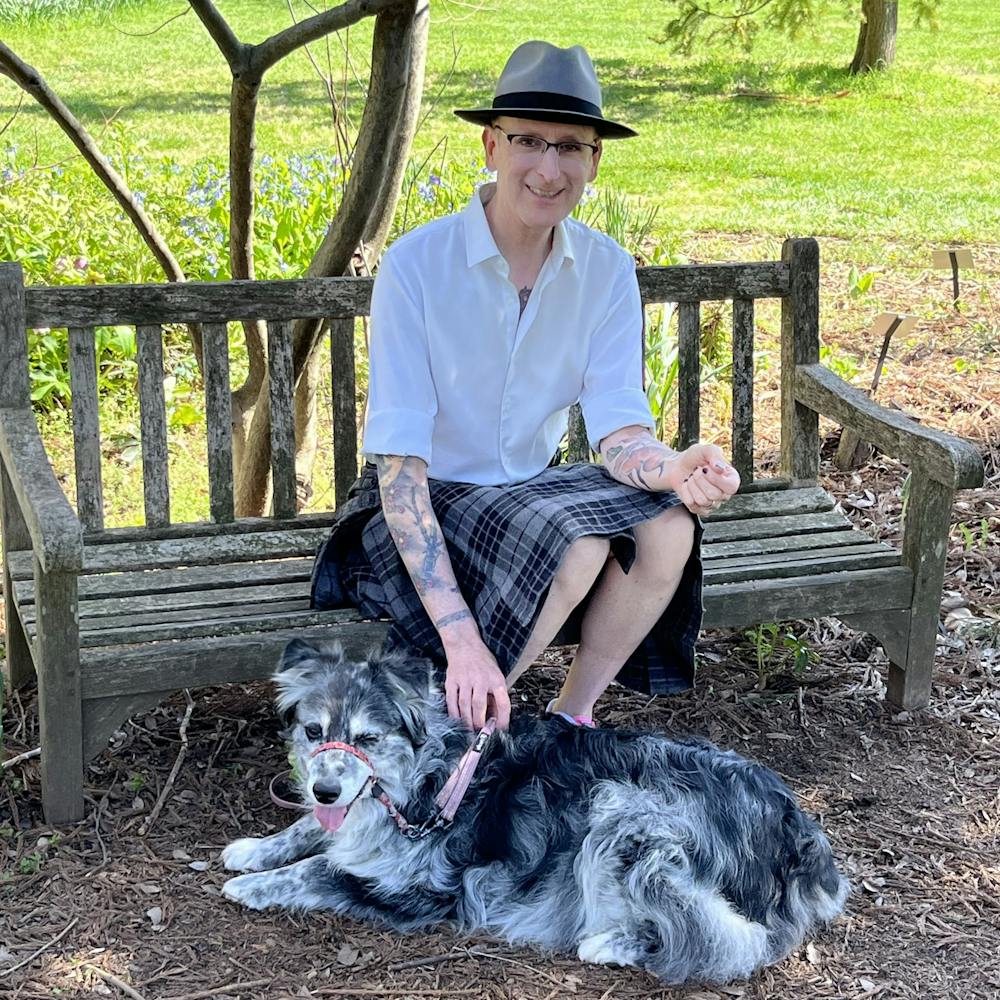Vid Smooke is a professor of Music Theory at the Peabody Institute. In an interview with The News-Letter, they describe their experience in academia, their educational philosophy and the arts scene in Baltimore.
The News-Letter: When did you realize you wanted to pursue music?
Vid Smooke: In high school in the 1980s, I first encountered synthesizers and what they could do. I would spend hours and hours just programming different sounds and trying to get it to make various sounds.
Meanwhile, I was just in love with listening to music and especially the weirder the music, the better. I encountered the music of a composer named George Crumb in a high school class. His music was so beautiful in a way that I couldn't possibly understand how it could exist. And when I found out that he taught at the University of Pennsylvania, I decided to do everything I could to go out there and study with him and learn how he was able to do this.
N-L: How did you end up at Hopkins?
VS: After about two years of working as a music publisher by day and in theater by night, I realized that it just wasn't sustainable. I needed a change in my life. I decided that the only way to get a change was to pursue a higher level of education.
This was 1992 when I was submitting the applications, so I didn't have the internet yet and the only way to figure out what schools existed was a dictionary. The back of the dictionary had a list of colleges and universities in the United States and so I went through and was like, “Well, I've heard [Hopkins] is a good school and is in a city where I could imagine myself living.”
N-L: How was the transition back into school?
VS: What I found when I got to Peabody was that, because I had been in the working world and was coming back to school, I knew exactly why I wanted to be in school and what my goals were, and my goal at that time was to be a creator who taught.
It was by far the best thing I could have done. I think a lot of people are afraid to get out of school then lose how it works. I would say, ‘Don't worry about it.’ So much of doing well in school is knowing why you're in school and being ready to put in the work. When I got to Peabody, people were saying, ‘Yes, and now your main goal is to compose.’ I was just astonished. ‘Wow, so I get to compose 40 hours a week and no one's going to try to tell me there are other things I should be doing?’ Amazing.
From the moment I went back to school, teaching was a primary goal, so I made absolutely certain to find teaching anywhere I went. While I was a student at Peabody, I taught in what was called the Elderhostel program, which were courses for retirees who wanted to come to a conservatory and go to a lot of concerts and learn more about classical music.
N-L: Now you're teaching everything from history of rock classes to music theory classes. What draws you to teaching in general?
VS: When I was younger, I didn't fit in in any way and was suicidal and bullied and all that stuff that a lot of people experience in high school. When I got out of those situations and found people who were able to engage with me intellectually, it was a real-life saver for me. Like, it literally saved my life, so I hope to be that for the next generation [of] people who maybe don't fit in for whatever reason. To me, the main thing that any class teaches is how to assess information in order to be a better citizen. I think that no matter what class I'm teaching — at the heart — it's about analyzing the information and trying to come up with a judgment instead of coming to the material with preconceived notions.
N-L: How have you applied this to your classes at Hopkins and interactions with Baltimore?
VS: I helped create an experimental music ensemble at Peabody about 10 years ago. That was really designed to reach students who weren't being served by the other ensembles at Peabody and students who might have felt a little bit like outsiders.
Although I've been doing less of this since the pandemic, one of the main things I’ve tried to do was really tie Hopkins to the Baltimore community and recognize that Hopkins is part of a larger community that has so much to give us, especially in the field of music and experimental music. Baltimore is one of the world's centers for experimental music, especially improvisatory music.
Some of the people working in it are Hopkins faculty. Wendel Patrick runs an organization called the Baltimore Boom Bap Society that does improvisational hip-hop performances every month. There's an international festival of improvisation called High Zero festival that brings in people from all over the world. Just getting the students to realize that there is a community here and that the community is very welcoming and wants people to be a part of it has really been the best.





